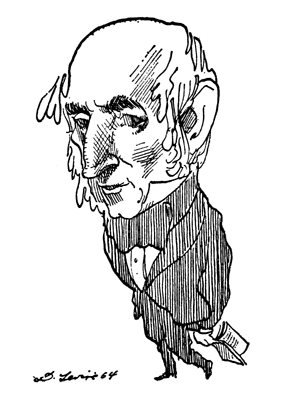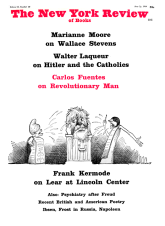Lord Rosebery was the Liberal party’s Prime Minister of England for little more than a year, from March 1894 to June 1895. He was a Scottish nobleman of immense wealth and outstanding talents, and many people expected him to be one of the outstanding statesmen of modern British history. Yet his tenure of office proved disastrous. This was not altogether his fault. He inherited from his octogenarian predecessor, the venerable William Ewart Gladstone, a bare majority party fatally weakened by its commitment to Irish Home Rule, a Cabinet torn by feuds and dissensions, the knowledge that a predominantly Conservative House of Lords was both willing and able to block any legislation not to its liking, and a monarch who, though delighted that he had succeeded “that dangerous old fanatic,” was so suspicious of Liberal intentions that she felt called upon to warn her new Prime Minister against destroying “well tried, valued, and necessary institutions for the sole purpose of flattering useless Radicals or pandering to the pride of those whose only desire is their own self-gratification.”
Furthermore, Rosebery’s dreams of a high destiny for the Empire, and his determination to support British interests in Africa (which he had already demonstrated as Foreign Secretary under Gladstone) went counter to traditional nineteenth-century liberalism with its predilection for a “Little England” and its fear of imperial entanglements. To add to his troubles, his horses managed to win the Derby not once but twice while he was Prime Minister. This was too much for the praying section of the Liberal party, the non-conformists, who were hardly appeased by his reminder that Oliver Cromwell himself had owned race horses. “Although, without guilt and offense, I might perpetually run seconds and thirds, or even run last, it became a matter of torture to many consciences if I won.” By the time he spoke in this ironic vein to a Turf Club dinner in 1897, the Conservatives were back in office, and he had resigned from the leadership of the Liberal party. For some years he continued to serve as the rallying point for Liberal Imperial sentiment. But he resisted all blandishments to return to the arena of active politics. One historian has called him “the Prince Charming of his age.” Yet, ultimately, he was a failure.
Is he, then, worth a full-length biography of the kind we are given here, replete with extensive quotations from Rosebery’s papers, published and unpublished, and containing at some points not only day-to-day, but literally hour-to-hour accounts of political maneuvers and intrigues long dead and, some might say, deservedly forgotten? Yes, for several reasons. Failure in politics can be a subject as worthy of study as success, especially when it forms part of a larger historical pattern of decline and frustration. Such a pattern Mr. James finds and delineates in the waning years, the tag end of Gladstonian liberalism. By the early Nineties Gladstone’s first Ministry, so vital a force in bringing public education and administrative reform to England, was a generation back. Home Rule for Ireland, financial retrenchment, peace through free trade—these were not battle-cries that filled the fin-de-siècle mood. The challenges of social welfare and Empire beckoned; and a party which had fought for so long under the banner of political rather than social democracy, and had shied away from imperial adventures, found it hard to respond to those challenges.
In some ways Rosebery was undoubtedly closer to the new tendencies than most of his colleagues. He had been aware for many years of the importance and potential of the British Empire—as early as 1883 he had prophetically called it a “Commonwealth of Nations.” As the first and very able chairman of the newly created London County Council (1889-1890), he had had some first-hand experience of working-class problems and needs. This is one phase of Rosebery’s career which the author of this biography passes over all too quickly. Winston Churchill, in his sketch of Rosebery in Great Contemporaries, concludes that the combination of imperial and social awareness would have better suited a disciple of Disraeli than a follower of Gladstone. And indeed, shortly before his death in 1929 (according to his instructions, the Eton Boating Song was played on a phonograph record as he lay dying) Rosebery himself expressed the view that his greatest mistake had been that of not having attached himself to “Dizzy” in his youth.
As it was, Rosebery’s coming to power coincided with an inglorious and undignified period of Liberal squabbles. Even Gladstone had had to lend himself to the sale of peerages to refresh exhausted party coffers, and Mr. James’s pages on the disintegration of the “Grand Old Man’s” last Ministry early in 1894 should forever dispel any remaining illusions about the particularly moral aura of Victorian liberalism. In the fight for the succession to Gladstone, Rosebery, then Foreign Secretary, won out over his chief opponent, Sir William Harcourt, the Chancellor of the Exchequer. The story of this struggle is a tragi-comedy of intrigue as sordid as any in British political history. While John Morley was trying to deceive the Prime Minister, the old man—more Volpone than “Sweet William”—was himself trying to make fools of his colleagues by keeping them in suspense; “Loulou” Harcourt was, in the meantime, maneuvering on behalf of his father’s candidacy, and through it all, Rosebery disingenuously remained above the battle. All this reached a fitting climax at the final Cabinet meeting (Gladstone was to call it “the blubbering Cabinet”), during which Harcourt, in Rosebery’s words, “pulled from his pocket a handkerchief and a manuscript and at once commenced weeping loudly.”
Advertisement
But its picture of past politics is not the book’s greatest interest, though this is carefully and vividly drawn. Rosebery’s failure lay not merely in the political circumstances of his time, but even more within the man himself. One of his Eton masters, William Johnson, wrote about Rosebery during his school-days: “He is one of those who like the palm without the dust.” That phrase came to haunt his reputation throughout his lifetime and beyond the grave. Mr. James complains that this is unjust. Yet his own explanation of Rosebery’s failure is not so very different from Johnson’s prescient comment; especially if for “dust” one reads, not “hard work,” but “battle.” Success came too easily to him early in life. He became accustomed to getting his own way. He was not averse to hard work, but he was temperamentally reluctant to plunge into what he called “this evil-smelling bog,” the hurly-burly of everyday politics. Mr. James writes: “He would have preferred to have conducted all the business of the State with quiet reasonableness, with himself in command; when faced with opposition he either retired in a huff or conceded the point.”
His was not the personality of a successful politician. He was high-strung and sensitive, plagued by insomnia, easily bored, moody; cynically self-confident and aloof on the surface, yet filled with doubt and indecision. His innermost feelings, such as his strongly held Calvinist beliefs, lay well concealed under a brittle shell of urbanity and sardonic humor. For twelve years, from 1878 to 1890, his happy marriage to Hannah de Rothschild gave him the affection and understanding he craved. “His children remember how he would honor her religion, and how, at the end of the Day of Atonement, he would take up to her the tray of food with which she ended her fast, and how they would sit together, quietly talking, far into the night.” Her early death was a blow from which his spirits never really recovered.
In some ways this is old-fashioned biography, clearly recognizable as a descendent of Victorian “life and letters”—even to the author’s niggardliness about dates (often one does not know what year on is in without turning back several pages). A Victorian biographer, however, would certainly have lacked Mr. James’s psychological skill. He is particularly shrewd at describing how the rift with his mother over his views, as well as his marriage, affected Rosebery’s character. The book contains a great many quotations and source extracts, by Rosebery himself and about him by contemporaries, which serve to underline the elusive and enigmatic nature of Rosebery’s personality by presenting a kaleidoscope of differing views of him.
We are, alas, not given extracts from Rosebery’s account, which he privately circulated, of a joint lecture given by Ferdinand de Rothschild and the Prince of Wales on “Copulation—Ancient and Modern.” Nonetheless, there are many samples of his crisp and elegant style. Here, for instance, is part of a letter to Queen Victoria, written while he was Foreign Secretary:
Lord Rosebery had hoped that in the torpid and somnolent atmosphere of the Hague Sir Horace Rumbold’s proverbial irritability would have lost something of its keen edge. To learn therefore from Your Majesty that he has managed to tax the endurance of the phlegmatic and impassive Dutch is almost more than Lord Rosebery can bear. For it is impossible to move him. It would be wrong on the one hand to foster by his promotion the race of impracticable diplomatists of which he is the ideal, while on the other hand it is clear that the Court does not exist which would not, after the briefest experience, pant for his removal. A post as Queen’s Messenger of an exalted and special description, which would keep him in constant flight through the principal capitals of Europe, would alone meet the case of this bird of sinister passage; but this, unfortunately, does not exist.
No wonder the Queen advised him a year later to take a more serious tone in his speeches, “and be, if she may say so, less jocular which is hardly befitting a Prime Minister.”
Advertisement
Rosebery may have inherited his humor from his mother who made a hobby of observing and recording social gaffes, such as that of old, myopic Lord Portarlington, who once said to Queen Victoria: “I know your face quite well, but dammit I cannot put a name to it!” Thanks to Mr. James’s excellent biography, this is a comment we need no longer make about Lord Rosebery.
This Issue
June 25, 1964




